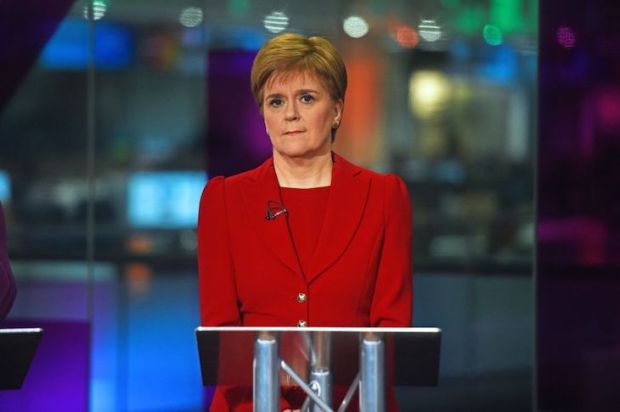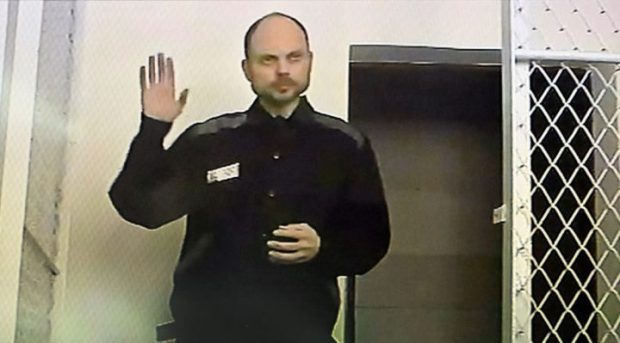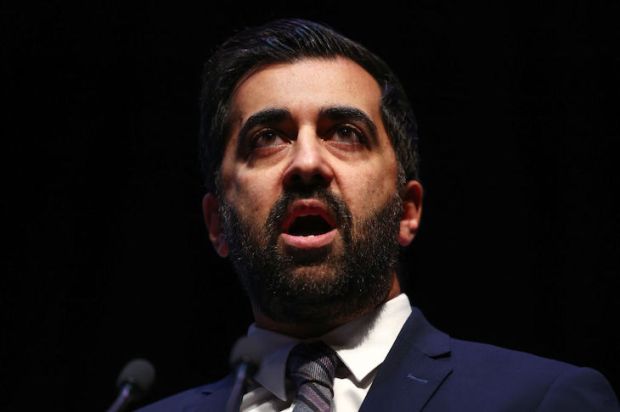Martial law can arrive with a bang: tanks on the streets, Swan Lake on the TV. It can also creep up on a country in the guise of a presidential edict with the title ‘The Decree On Measures taken in the Constituent Entities of the Russian Federation in Connection with the Decree of the President of the Russian Federation of October 19, 2022 No. 756’. Either way, Vladimir Putin has just moved Russia one step closer to totalitarianism.
What is interesting is just how long and half-hearted a process this has been. When Putin invaded Ukraine in February, the sharpest-beaked hawks in his entourage were urging total war, and with it an imposition of tight state control over much of the economy. Putin hesitated, though, and the technocrats and economic liberals in the government were able to get him to stay his hand. Then again, that was on the wholly unrealistic assumption that this was going to be a quick, victorious war, and that western sanctions would be relatively limited. Now that Moscow is desperately fighting for a draw, and the prospect of any ‘reset’ with the West is vanishingly small, it has been getting harder and harder to pretend that business as usual can be maintained.
Even so, Putin the prevaricator is finding it hard to fully side with either the technocrats or the hawks, or to take full responsibility for what he is planning to do.
Following an emergency meeting of his Security Council, where he accused Kyiv of ‘terrorism’ as it ‘refused to recognise the will and choice of the people’ in occupied territories – meaning their annexation after wholly illegal ‘referenda’ – he introduced two separate presidential decrees.
The first, the Decree on the Introduction of Martial Law in the Territories of the DPR, LPR, Zaporozhye and Kherson Regions is pretty short and straightforward. It is also in many ways irrelevant, as Moscow has been ruling the occupied territories under martial law in all but name. It does at least regularise this: there is an odd legalism to Putin’s regime, in that it does all kinds of illegal things, but does then seek to find some legal rationale for them.
The aforementioned Decree On Measures taken in the Constituent Entities of the Russian Federation in Connection with the Decree of the President of the Russian Federation of October 19, 2022 No. 756 is much more interesting. In effect, it imposes a form of martial law right across the country, albeit one that is open to local interpretation.
The regions of Crimea, Krasnodar, Belgorod, Bryansk, Voronezh, Kursk, and Rostov are now under a form of martial law lite. The local administrations have a wide range of powers to apply everything from curfews and movement controls to being able to order people temporarily resettled. Most ambiguous and perhaps dangerous is clause 3(e), that grants them the right to:
Introduce control over the work of facilities that ensure the functioning of transport, media and communications, the work of printing houses, computer centres and automated systems, for the needs of defence.
In other words, everyone from striking truck drivers to difficult newspaper editors can now be arrested and their enterprises brought under state control. Not that the rest of the country is exempt. A slightly less draconian regime is introduced over all the rest of the Central and Southern Federal Districts – so as far as Moscow – and marginally less serious ones everywhere else.
Some level of emergency regulation now applies across the whole of Russia. Of course, quite what this means remains to be seen. It is framed as empowering local officials (not least as Putin always prefers to let them take the flak for potentially controversial measures). It will be interesting to see who uses them as Moscow wants, who essentially tries to ignore them, and who just uses it to embezzle all the more assiduously.
Putin may not, after all, have considered the consequences of further strengthening local power players. Moscow’s mayor Sergei Sobyanin, for example, is clearly no fan of the war. His announcement on Monday that mobilisation in the city was over was widely seen as a snub to the Kremlin, and he has already said that at present he plans not to invoke any of the decree’s provisions.
After the 1905 revolution, the tsarist regime slowly extended its ‘Reinforced Guard’ and ‘Extraordinary Guard’ provisions. By 1917, pretty much the whole country was under one of these martial law-style provisions. A similar creeping spread of martial law is taking place under Putin – but the parallel can hardly be that comforting to today’s tsar.
Got something to add? Join the discussion and comment below.
Get 10 issues for just $10
Subscribe to The Spectator Australia today for the next 10 magazine issues, plus full online access, for just $10.



















Comments
Don't miss out
Join the conversation with other Spectator Australia readers. Subscribe to leave a comment.
SUBSCRIBEAlready a subscriber? Log in